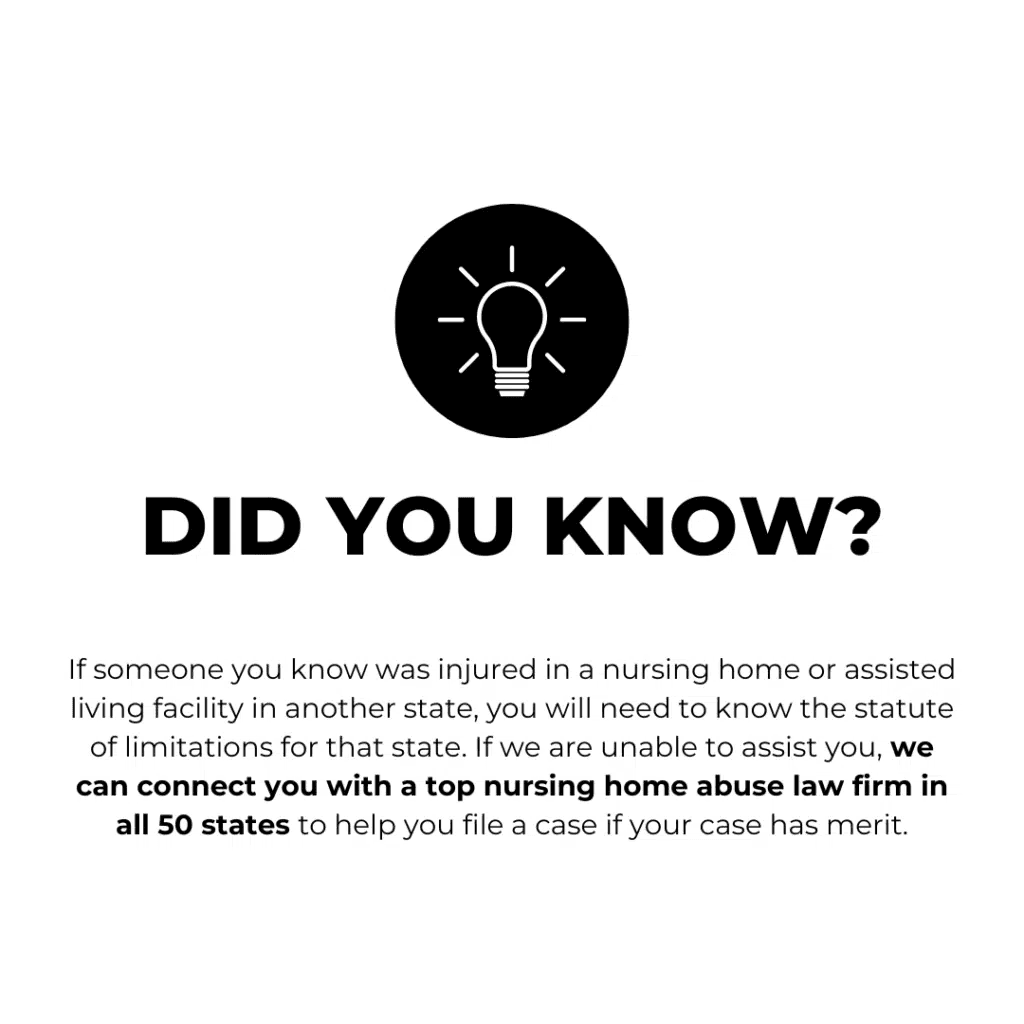
Nursing home abuse and neglect put vulnerable residents at serious risk, leading to malnutrition, dehydration, infections, and preventable injuries. When facilities fail to provide adequate care, residents suffer, and families are left feeling helpless. Lack of supervision, improper medical treatment, and unsafe conditions can result in devastating harm. Understanding the warning signs, knowing your legal rights, and holding negligent facilities accountable are crucial steps in protecting your loved ones. Learn how to take action and seek justice.
November 5, 2024
3 min
When a loved one requires long-term care, deciding to transition to a nursing home is often fraught with emotional and practical challenges. Ensuring their loved one receives compassionate, effective end-of-life care is paramount for families. Hospice care in nursing homes offers a pathway to provide this critical support. This comprehensive guide aims to elucidate what hospice care entails, how it integrates into nursing home settings, and the necessary legal considerations that families should be aware of.
Hospice care is a specialized form of medical care designed to provide comfort and support for individuals in the final stages of a terminal illness. Unlike curative treatments that focus on attempting to cure the disease, hospice care prioritizes enhancing the quality of life. This approach encompasses a range of services intended to manage symptoms, address emotional and spiritual needs, and offer support to patients and their families.
Pain relief is a cornerstone of hospice care. The goal is to manage physical discomfort through medications, therapies, and other interventions tailored to the patient’s specific condition and needs. Symptom management extends beyond pain to address issues such as nausea, shortness of breath, and insomnia.
Hospice care recognizes that end-of-life care’s emotional and spiritual aspects are as important as physical comfort. This support includes counseling services, spiritual guidance, and bereavement support. The interdisciplinary team–often including social workers, chaplains, and counselors–works to provide holistic care that respects the patient’s beliefs and values.
Each patient’s care plan is individualized and developed in collaboration with the patient, their family, and the healthcare team. This plan addresses patients’ preferences, goals, and needs, ensuring that care is tailored to their unique situation.
Hospice care is available around the clock. This constant availability ensures that any urgent needs or concerns are promptly addressed, providing peace of mind to the patient and their family.
For many individuals residing in nursing homes, integrating hospice care into their existing care plan can offer numerous advantages. This integration allows patients to continue receiving familiar care while benefiting from specialized hospice services.
Remaining in a familiar environment can significantly reduce stress for patients. Nursing homes often house long-term residents with established relationships with caregivers and peers. This continuity of environment and social connections can contribute to the patient’s emotional well-being.
The transition to hospice care within a nursing home is typically smooth. Nursing home staff are already familiar with the patient’s history, preferences, and care needs, which helps provide consistent and effective care. This familiarity can ease the adjustment for both the patients and their families.
Integrating hospice care within a nursing home involves collaboration between the nursing home staff and the hospice care team. This teamwork ensures that all aspects of the patient’s care are coordinated, comprehensively addressing medical, emotional, and practical needs.
Hospice care extends support to families as well. This support can include respite care, which allows family members a temporary break from caregiving duties, and counseling and guidance through the end-of-life process. This comprehensive support helps families cope with the emotional challenges of this time.
If you are considering hospice care for a loved one in a nursing home, here are steps to facilitate the process:

Understanding hospice care also involves being aware of the legal aspects related to end-of-life decisions. Proper planning and legal considerations can help ensure that patient’s wishes are respected and receive the care they are entitled to.
Advance directives are legal documents that outline a person’s wishes regarding their medical care if they cannot communicate those wishes themselves. Common advance directives include living wills and do-not-resuscitate (DNR) orders. It is important to ensure these documents are in place and communicated to the healthcare team.
A healthcare proxy, also known as a durable power of attorney for healthcare, designates a person to make medical decisions on behalf of the patient if the patient is incapacitated. Selecting a trusted individual and clearly outlining their authority in a legal document can help ensure that the patient’s preferences are honored.
Familiarize yourself with the patient’s rights under both state and federal law. This includes understanding rights related to the quality of care, informed consent, and the right to refuse treatment. Knowledge of these rights can help protect the patient’s interests and ensure that they receive appropriate care.
Hospice care can have financial implications, including costs not covered by insurance or Medicaid. Review the patient’s insurance coverage and discuss financial planning with a legal or financial advisor to address potential costs and ensure that financial resources are managed appropriately.
Open and honest communication with the hospice care team, nursing home staff, and family members is crucial. Discussing expectations, preferences, and concerns can help facilitate a smoother care process and ensure everyone is on the same page.
Keep thorough records of all care plans, medical documents, and communication with healthcare providers. This documentation can be valuable for addressing issues and ensuring the patient’s wishes are followed.
End-of-life care can be emotionally taxing for families. Consider seeking support from counseling services, support groups, or other resources to help navigate the emotional challenges associated with caregiving and loss.
Stay informed about the hospice care process and any changes in regulations or policies that may impact care. Knowledgeable families are better equipped to advocate for their loved ones and make informed decisions.
Hospice care in nursing homes provides a compassionate and supportive environment for individuals in the final stages of a terminal illness. By understanding the components of hospice care, how it integrates with nursing home settings, and the legal considerations involved, families can make informed decisions prioritizing their loved one’s comfort and dignity.
Michael Hill is a nationally recognized attorney who handles exclusively cases against long term care facilities. Michael and his firm, Michael Hill Trial Law, handle cases across the country.
Disclaimer: This information is provided for informational purposes only. Nothing in this article should be construed as providing legal advice or the creation of an attorney client relationship. Laws are updated frequently and change from state to state. If you desire legal advice, you can contact Michael Hill Trial Law at www.protectseniors.com, send an email to info@protectseniors.com, call (800) 659-2712 to begin an investigation, or contact another attorney.